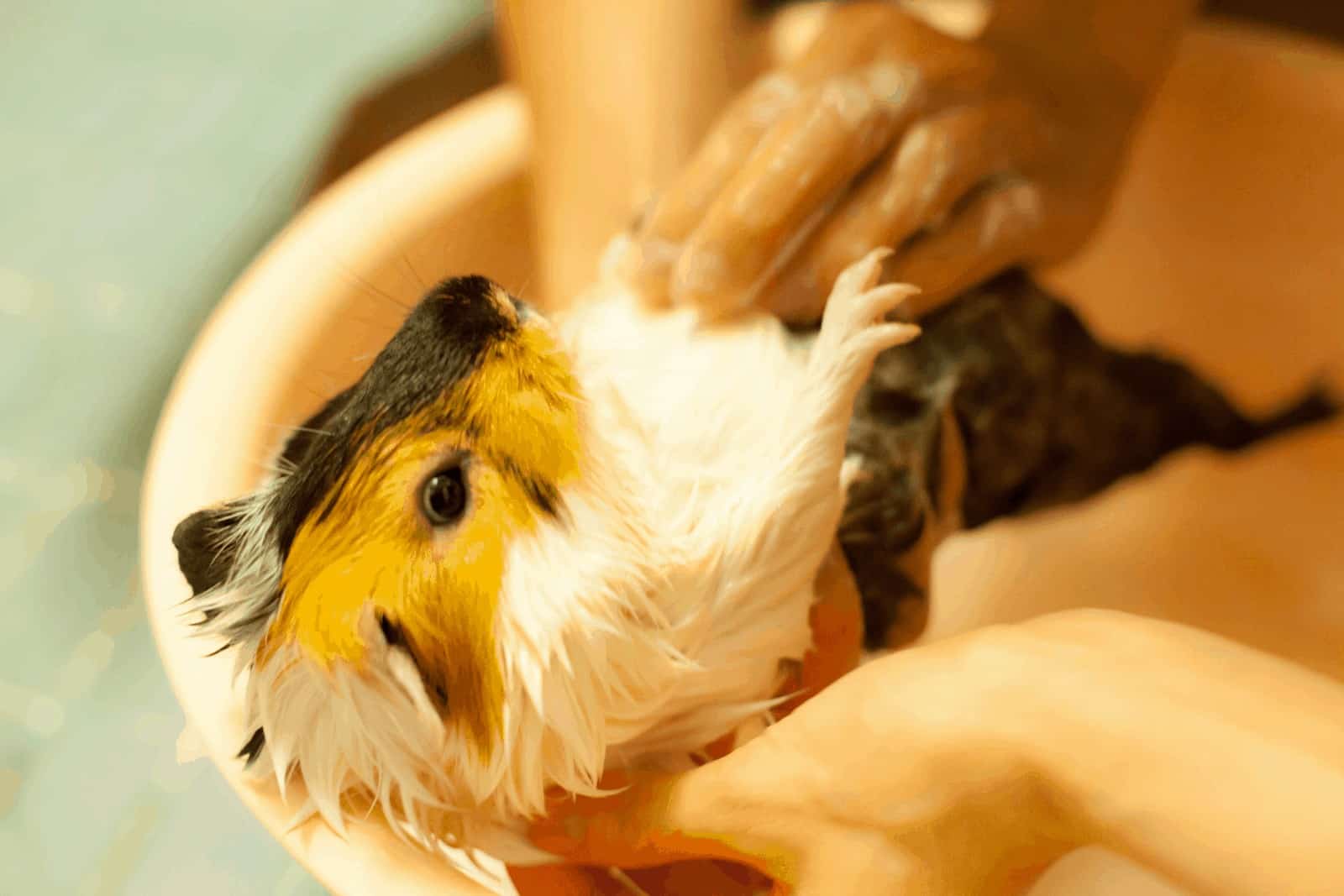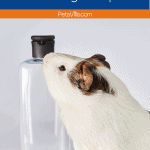Wondering how to make guinea pig shampoo to clean your dirty little piggy?
Do cavies even NEED baths?
Below, we’ll answer look at some DIY shampoo ideas to try (since you asked that first), then we’ll go over the second question a bit.
We have a lot to go over, so let’s get started.
Table of Contents
HOW TO MAKE YOUR OWN GUINEA PIG SHAMPOO
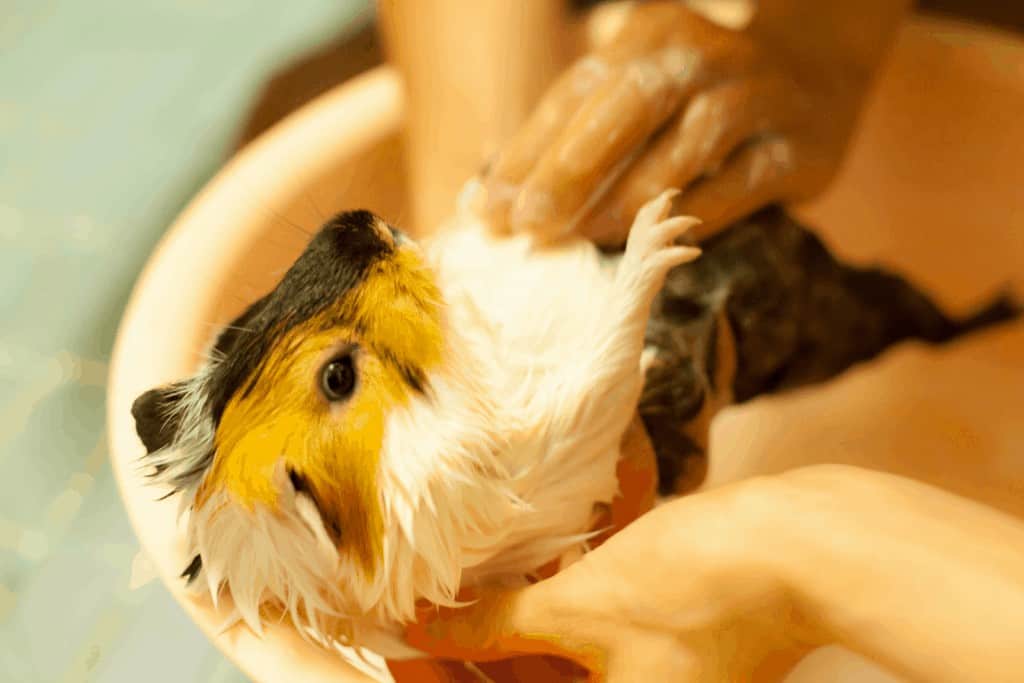
First, if you’re wondering, “Can I use human shampoo on guinea pigs?” the answer is a resounding NO.
Human shampoos- even the “gentle” stuff made for babies, contains chemicals that just aren’t safe for small pets.
So, you’ll either need to buy special shampoo designed for your cavy OR make it yourself.
Since you landing here looking for “how to make guinea pig shampoo,” then I’m going to assume you prefer to go with the latter.
So, let’s go over some DIYs now. Then, we can look at some other common questions and concerns about cleaning your cavy.
DIY Guinea Pig Shampoo
Let’s look at two options that I use (please don’t hate me for the first one). Then we’ll look at what I don’t use because that’s just as important.
1. Single-Ingredient Guinea Pig Shampoo
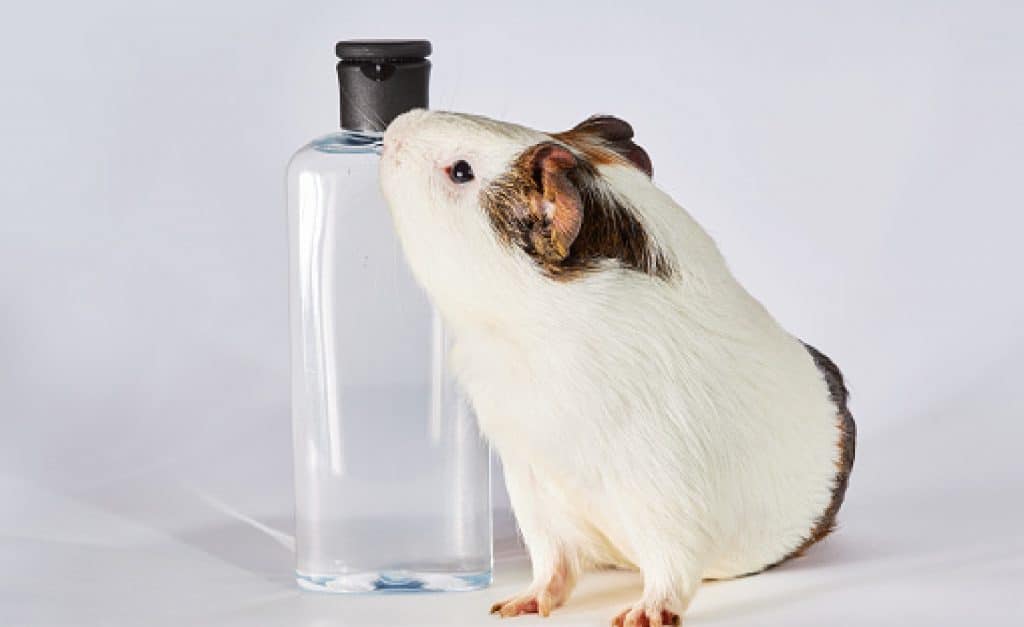
The safest homemade guinea pig shampoo is also the cheapest and easiest to make. Here’s what you need:
- Warm water.
That’s it. Seriously, unless your cavy is really, really, really filthy, you don’t need anything beyond water to get her clean.
If you feel like you need something more, I really only recommend one other DIY shampoo.
Here’s what I use on the very rare occasion that water alone doesn’t get the job done.
2. Coconut oil guinea pig shampoo
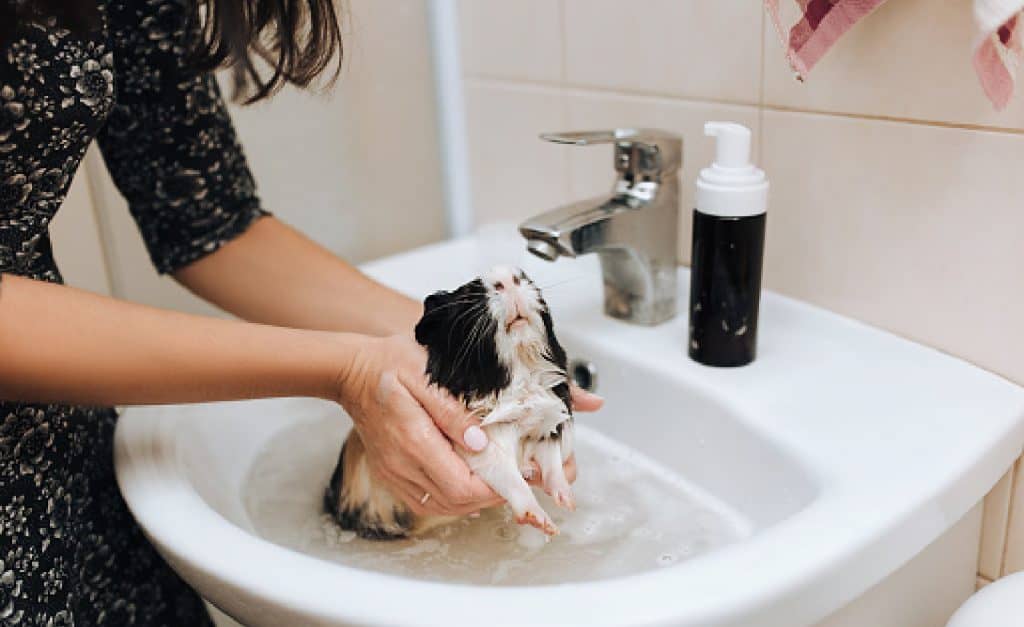
- 1/2 cup warm water
- 2 tablespoons coconut oil (in liquid form)
That’s it. Two ingredients. Combine them and voila, you have a safe and gentle guinea pig shampoo.
HOWEVER, keep in mind that coconut oil- or ANY oil- can result in a pretty greasy piggy. So you want to make sure to rinse thoroughly.
Now that we know what two ingredients I DO feel comfortable using on my cavies, let’s talk about those I purposely leave out that you often find in other DIYs.
Why I Don’t Use Dish Soap in My DIY Cavy Shampoo
Literally every single homemade guinea pig shampoo tutorial that I looked at before I figured out my own included dish soap in their recipe, and I’m not really a fan of that.
I think we assume that because it’s used to clean birds affected by oil spills, it’s safe for our pets.
Yes, it’s safe for these emergencies.
However, there’s a big difference between “we need to clean this petroleum oil off these birds so they don’t die” and “my cavy stinks and needs a bath.”
Think about it: it’s used because it strips away the oil. What do we NOT want to do when we’re bathing our guinea pigs?
If you answered, “strip away their skin’s natural oils,” you’re absolutely right.
So, please, consider leaving the dish soap out of your homemade guinea pig shampoo. It’s just not necessary.
How about apple cider vinegar?
Another ingredient that I see mentioned often in cavy shampoo is apple cider vinegar. Again, I’m not a fan.
See, ACV is very acidic, so it’s not really safe for guinea pigs to eat. “But I’m not feeding it to her, I’m bathing her with it!” you say?
Look, I’ve yet to figure out how to give any pet a bath without them drinking at least some of the water.
That’s why I’m so diligent about using things that won’t harm them if ingested.
Guinea pigs also have very sensitive lips, so even if they manage to not drink their bath water, chances are the ACV will still come into contact with delicate skin.
It’s just not worth the risk to me.
Can I add essential oils to guinea pig shampoo?
I am begging you, DO NOT use essential oils on your guinea pig. Essentials oils have their place in human shampoos and skincare products.
I’ll take them over artificial fragrances any day. I even use them for holistic medicine, within reason.
However, when it comes to our pets- especially our small pets- there really just isn’t enough research showing that they’re safe.
In fact, many of them are downright toxic. I wouldn’t even recommend using EOs in a diffuser in the same room as your cavies unless it was clear on the other side of the room maybe.
Even then, I’m very much an “err on the side of caution” type of girl.
Coconut oil + water really is the best way to go if you feel like you need something beyond water alone.
It’s safe and just as effective at dealing with really tough problems as any special store-bought guinea pig shampoo.
Do Guinea Pigs Even NEED Baths?
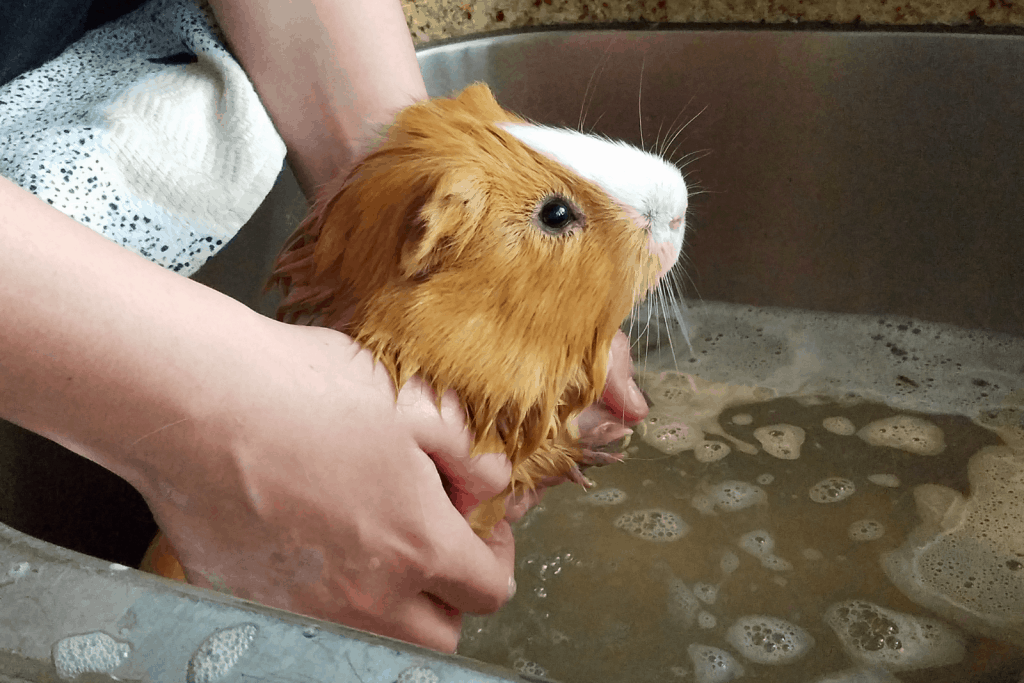
During the eight years of guinea pig parenting, I’ve given my piggies a bath exactly ONE time.
Like cats, cavies are pretty good at pruning and preening their own fur.
While they may seem like dirty creatures given the sheer amount of poop you find in their habitat on any given day, they’re actually pretty clean.
Not only are cavies pretty good at maintaining their own hygiene, but they’re absolutely NOT fans of water AT ALL.
Don’t let those funny YouTube videos of cavies swimming fool you. As the video below explains, it’s not only terrifying for them, but can actually cause respiratory issues.
Bottom line, guinea pigs don’t really need frequent baths. Save bath time for those really dire situations, or when recommended by your vet.
If you do bathe your cavy, please skip the dish soap. Either use just plain warm water or water with a bit of coconut oil.
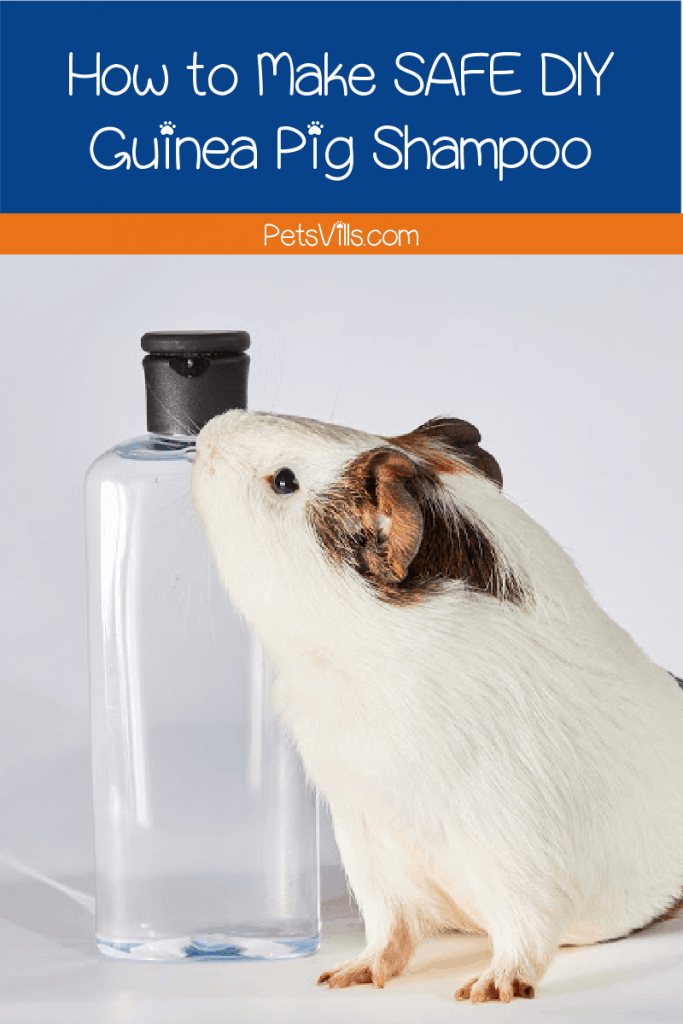
Do you have other DIY ideas on how to make a SAFE guinea pig shampoo? Share with us below!

